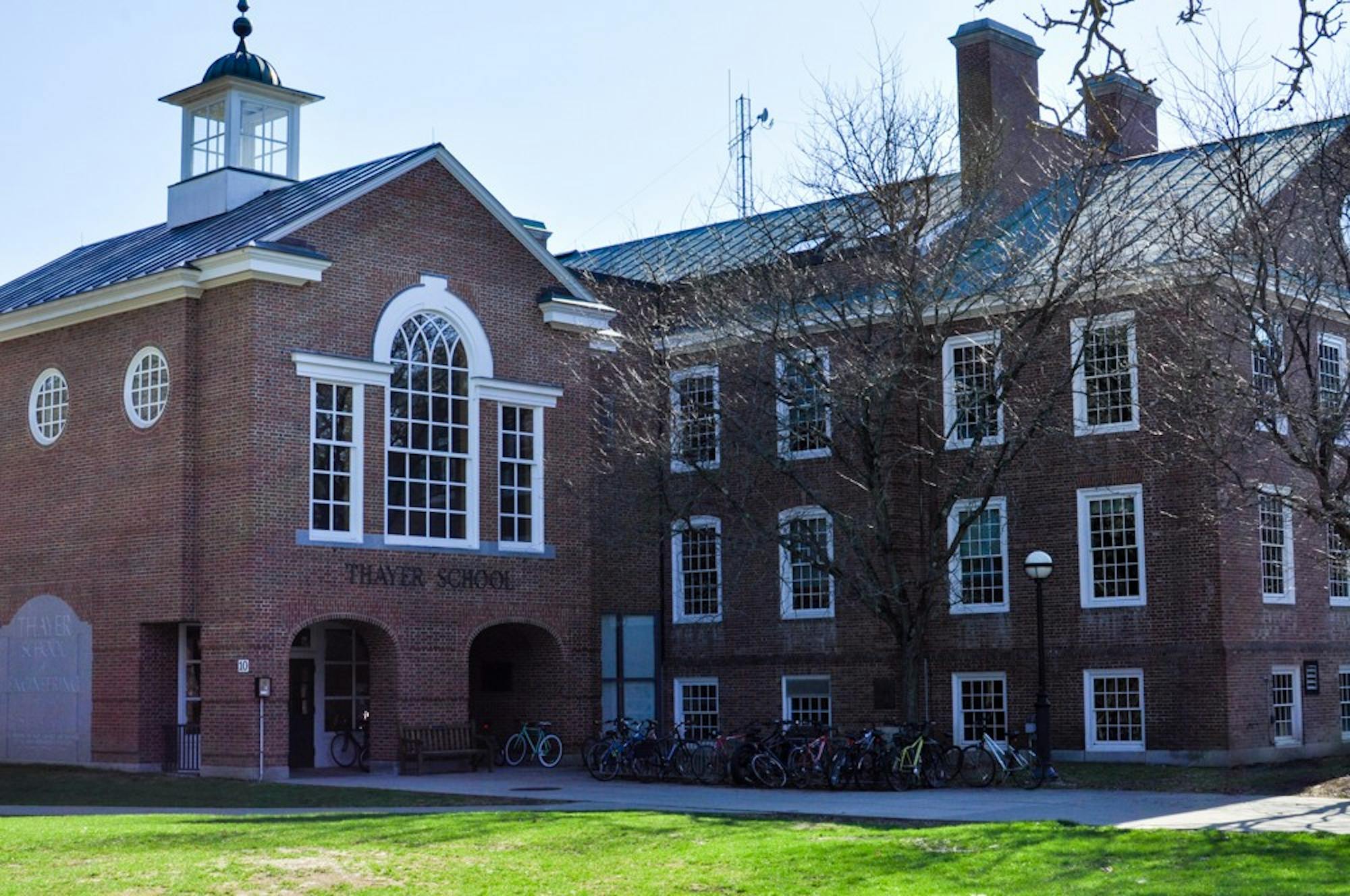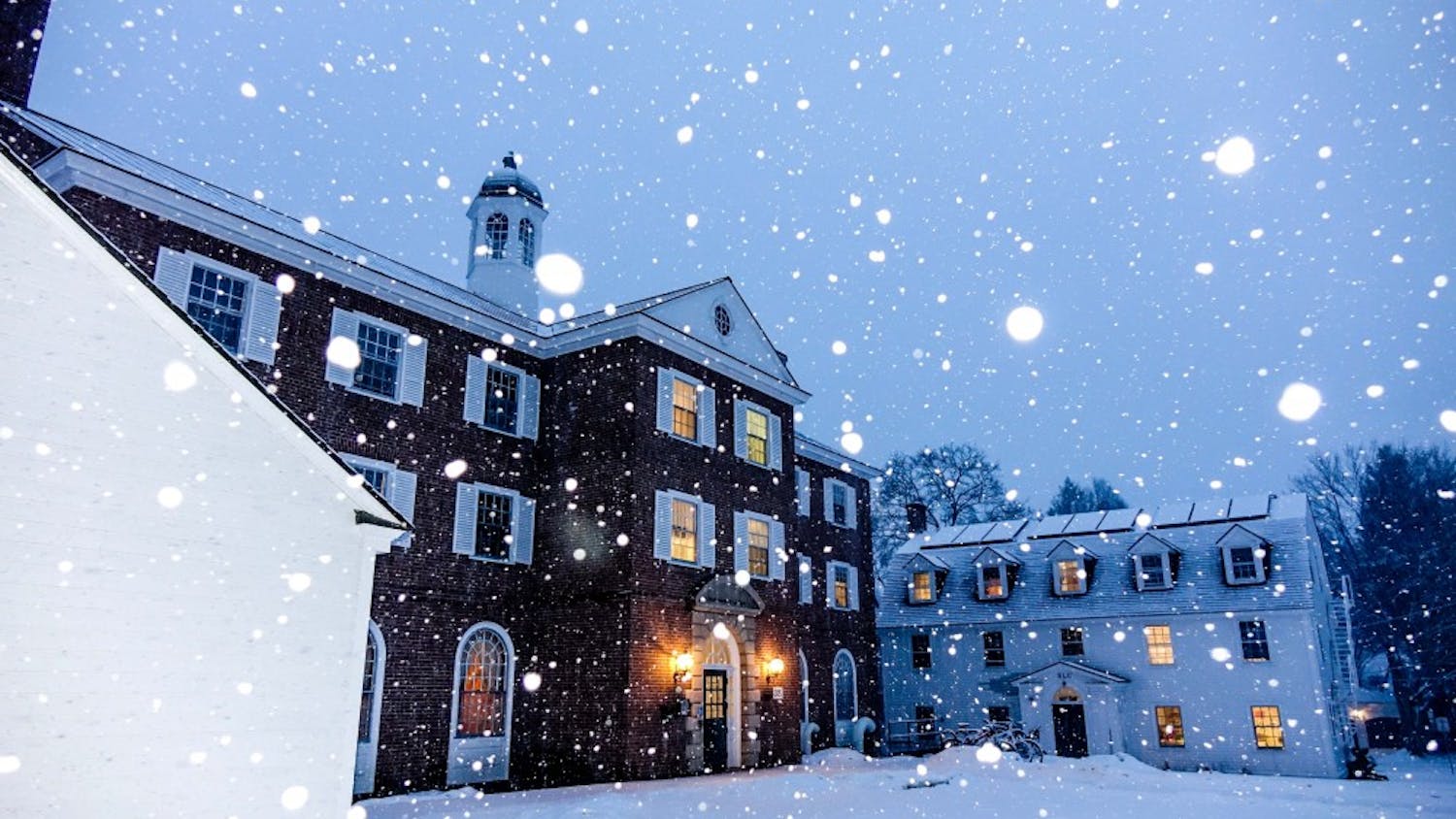Everywhere I go on campus, whether it be the Hop, Collis, Foco or any academic building, all I see are undergrads who appear to be the same age as I am. And it feels completely normal to see Dartmouth’s 4,410 undergraduate students walking around every day. However, it is easy to forget that there are also 2,099 graduate students on Dartmouth’s campus, especially when their experiences are less visible to someone like me.
Most undergrads I know at Dartmouth see grad students as an undiscovered mystery: Where do they live? Where do they eat? Where do they spend their weekends in Hanover if not at the frats (I kid, but do I really)? But few actually make the effort to meet and learn more about the grad student experience, something I tried to decode by meeting with students in several of Dartmouth’s graduate schools.
One of the first things I asked every graduate student I spoke with was: Why Hanover? I wondered what led them to decide to spend part of their 20s in a place where there really aren’t a ton of people in their age range. According to the 2010 census, only about 14.4 percent of Hanover’s residents spanned the ages of 25 to 44.
Bhargava Thyagarajan, a Ph.D student studying physics at the Guarini School of Advanced Studies, received his undergraduate degree at the Indian Institute of Science Education and Research in Pune, India, before deciding to make the move to Hanover upon discovering what he called “unique environmental draws” and “niche research opportunities” here at the College.
“Once I got accepted here, I looked up the area and thought it was a great place to live in, especially considering I love the outdoors,” Thyagarajan said. “Also because Dartmouth has such small programs, that leads to a very close-knit community and a collaborative work environment, which I was looking for.”
Thyagarajan said that what especially piqued his interest after growing up in India was the beautiful four-season experience Hanover offers, which was completely different from what he had been accustomed to his whole life.
“Coming from India, I like to say we only really have three types of weather: hot, hotter and hottest,” Thyagarajan said. “Here there’s winter, which is a whole different experience of getting outside, and I love it.”
Unlike Thyagarajan, Mo Zhu, a master of engineering management student at The Thayer School of Engineering, chose Dartmouth for the parallels he drew to his undergraduate lifestyle. Following his four years at Williams College, Zhu decided he preferred schools located in small, rural towns such as Hanover.
Contrary to his undergraduate experience, however, Zhu said that much of his graduate student experience has taken place off-campus, with parties and other get-togethers happening in students’ apartments throughout the week. Zhu also mentioned that some MEM students occasionally meet on the weekends, playing board games and spending time together in the MEM-specific area within Thayer.
“Compared to in undergrad, we definitely spend a lot more time away from campus,” Zhu said. “We’ll often go to restaurants in Lebanon or out in Vermont and generally take a lot less part in on-campus activities.”
Reed Bratches, a student at The Dartmouth Institute working on his master’s degree in public health, voiced similar thoughts on being off campus. He, too, felt that much of life as a grad student is very individualized, with few all-campus interactions happening outside of special college-sponsored events.
“You’re in kind of your own little world as a grad student,” Bratches said.
When the College does host events, however, Bratches shared that the turnout is notable.
“The school-sponsored parties that happen a couple times a year are wild, actually,” Bratches said. “At the Halloween party, for example, they clear all the tables and everything out of Foco, stick a bar at either end, and it really goes.”
While Thyagarajan, Zhu and Bratches all received their undergraduate degrees from other institutions, another grad student, Syed Rakin Ahmed, had quite a different experience. As a Dartmouth ‘18, Ahmed has already spent four years here at the College. On top of that, however, he plans to spend four more years in Hanover for his MD at The Geisel School of Medicine, as well as four years at Harvard University for his Ph.D.
However great their love for the College might be, agreeing to spend eight years in Hanover is a big decision for any Dartmouth student. And not only is Ahmed still here as a grad student, he is also still living in the dorms with other undergraduate students as a live-in advisor for the Global Village living and learning community in McLaughlin. Ahmed said that he felt strong enough ties to the institution and the people he met over the years here that he felt it worthwhile to stay a bit longer.
“For me, it was the pockets of community that I found at Dartmouth that I really treasured and identified with,” Ahmed said. “I felt that these pockets were sufficiently strong enough to make me want to continue my stay here.”
This continuity probably contributes to Ahmed’s opinion that life as a grad student does not feel all too different from life as an undergrad. He did, however, note a few key differences in the two experiences.
“I think the ability to spontaneously meet people was a lot easier to do as an undergrad as opposed to as a grad student, where we’re certainly a little far off,” Ahmed said. “I also think there generally is a separation or divide between how the undergraduate students are catered to versus the graduate students.”
One of the most distinct and life-changing differences that Ahmed noticed immediately after post-undergraduate life was having to prepare his own food daily.
“Definitely the biggest change for me was staying at and eating at the dining halls versus having to cook for myself now,” Ahmed said. “It feels like a big step toward adulthood.”
Exploring the grad student experience encouraged me to reflect on how truly segmented my view — and probably a lot of other students’ views — of Dartmouth and the Dartmouth population might be. While Dartmouth feels small to me, I realize that sentiment may not be because of the nature of the school but rather because of my own somewhat repetitive and predictable lifestyle as an undergrad. Although Dartmouth is a majority-undergraduate school, I think it’s important to remind ourselves that there are communities outside of our own who help comprise the population of Hanover. By making an effort to meet more people in communities that may be outside of our own social circles, we can all contextualize our experiences within the Hanover bubble, and widen our knowledge to those with previous experiences outside of it.
Correction appended (April 30, 2019): The original version of this article stated that Syed Rafkin Ahmed's Ph.D at Harvard University would take two years to complete; however, the degree will take four years to complete. The article has been updated to reflect this change.



